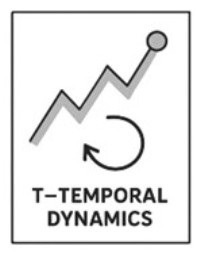ADVISORY ARTICLE
By Michael Frahm
Baden-Württemberg, Germany
Introduction
TILDA is a framework for systemic project management that reflects complexity in a differentiated way. Linear planning logics reach their limits in projects, especially in dynamic, interdisciplinary or innovation-driven contexts (Frahm & Roll 2022).
The TILDA framework offers a structured way of thinking and reflecting in order to understand projects as networked and multidimensional systems. The framework comprises five central perspectives:
T = Temporal dynamics,
I = Interdependencies,
L = Layered Systems,
D = Diversity of perspectives and
A = Active Networks.
Each of these dimensions is based on sound theoretical concepts and is linked to specific questions for reflection. This provides project managers with a tool that not only enables analysis, but also offers strategic orientation. TILDA promotes the early recognition of trends, interactions and tipping points, supports the handling of uncertainty and helps to integrate relevant perspectives. It focuses on the interplay between management, self-organisation and systemic relationships. As a framework, TILDA creates space for learning, adaptation and sustainable impact in the project process. It invites you to actively shape projects as dynamic systems. The introduction to the framework always follows the same fourfold pattern, with the presentation of the basic idea, theoretical concepts as a foundation, perspectives and questions for reflection.
Introduction to the TILDA Framework
T – Temporal dynamics
Basic idea: Systems change over time, sometimes in a non-linear way. Temporal changes, trends, tipping points and path dependencies are particularly important, as they have a significant influence on the course of development.

Figure 1 – Temporal dynamics
Theoretical foundations of temporal dynamics
Edward N. Lorenz: Known for the butterfly effect (sensitive dependence behaviour on initial conditions) and the Lorenz attractor, which shows that despite apparent unpredictability, patterns and structures exist in dynamic systems (Frahm 2025).
Ilya Prigogine: Development of the theory of dissipative structures, systems that can maintain order or even generate new order through the exchange of energy and matter with their environment which leads to self-organisation (Jackson 2019).
Donella Meadows: Importance of positive and negative feedback, of time-delayed effects in systems and of tipping points, which significantly influence the understanding and management of the system dynamics (Meadows 2008).
More…
To read entire article, click here
How to cite this work: Frahm, M. (2025). TILDA Framework for systemic project management, advisory, PM World Journal, Vol. XIV, Issue VII, July. Available online at https://pmworldlibrary.net/wp-content/uploads/2025/07/pmwj154-Jul2025-Frahm-TILDA-Framework-advisory.pdf
About the Author

Michael Frahm
Baden-Württemberg, Germany
![]()
Michael Frahm studied civil engineering and business law in Stuttgart, Kaiserslautern and Saarbrücken. Management courses at HEC Paris, HHL and Northwestern University. Winner of the Young PM Award of the GPM (IPMA) in 2010. Certification as Senior PM of the IAPM and certification as Advanced System Thinking Practitioner of the SCiO. Author of construction project management books with a systems perspective. Numerous articles and lectures on engineering and management. Lecturer on major project management and systems practice. More than 15 years of experience in the construction industry. Director of SCiO in German-speaking countries. Vice President of the EFBK- European Forum for Construction Cybernetics. He can be contacted at michael.frahm@systemspractice.org or Orcid: https://orcid.org/0000-0001-8470-6147 or LinkedIn: https://www.linkedin.com/in/michael-frahm-65220573/









